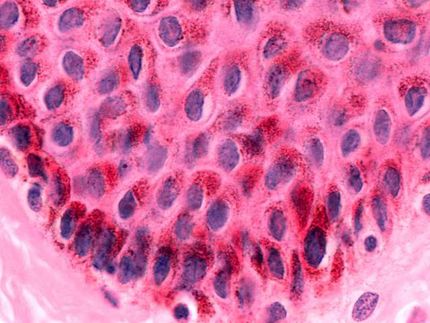mtm’s p16/Ki-67 dual immuno-staining identifies high-grade cervical disease in ASC-US and LSIL with high sensitivity and specificity
mtm laboratories announced the publication of a new paper showing that dual staining for p16 and Ki-67 can pinpoint the underlying high-grade cervical disease with a high degree of sensitivity and specificity in women with ASC-US or LSIL cytology results. These are a group of patients currently poorly served by existing screening technologies, with too many referred for unnecessary colposcopy. The paper, which details the EEMAPS study results, has been published in Cancer Cytopathology.
The EEMAPS study used the advanced biomarker combination CINtec® PLUS, which was launched by mtm in early 2010 in Europe. Residual materials from a previous pan-European retrospective cytology study were used to prepare additional slides for p16 and Ki-67 dual immuno-staining. In total, 361 ASC-US and 415 LSIL cases with corresponding biopsy results and HPV test results were available for dual stain cytology analysis. The presence of one or more dual-stained cervical epithelial cell(s) defined a positive test result with CINtec® PLUS, independent from morphology interpretation. The clinical results showed that the sensitivity of the dual stain for high-grade disease was 92.2% (71/77) for ASC-US, and 94.2% (129/137) for LSIL cases, which is equivalent to the sensitivity results obtained for HPV testing. However, specificity was significantly higher for CINtec® PLUS as compared to HPV testing; 80.6% vs. 36.3% for ASC-US and 68.0% vs. 19.1% for LSIL.
“mtm’s CINtec® PLUS is the first test that provides high sensitivity and high specificity for underlying high-grade cervical disease in a single product, irrespective of women’s age and the individual HR-HPV genotype,” commented Bob Silverman, CEO of mtm laboratories. “Because the test can pinpoint which women are most likely to have cervical disease and need follow up, this should reduce a large number of the unnecessary, uncomfortable and costly colposcopies carried out on women with ASC-US or LSIL.”
ASC-US and LSIL are definitions for equivocal and mild to moderate abnormal cytology findings on Pap tests, and may represent 5-8% of all cervical cytology cases. While most of these findings are negative for high-grade disease, 15-20% of LSIL and 6-10% of ASC-US will harbour high-grade disease. Together, these two categories of cytology represent the source for about 60% of all cases of high-grade cervical disease in women. Unfortunately, these Pap cytology results are not adequate predictors in determining which ASC-US or LSIL cases require intervention due to the low rates of underlying disease. Adjunctive HPV testing also has limitations due to unsatisfactory specificity.
Original publication
Other news from the department research and development

Get the life science industry in your inbox
By submitting this form you agree that LUMITOS AG will send you the newsletter(s) selected above by email. Your data will not be passed on to third parties. Your data will be stored and processed in accordance with our data protection regulations. LUMITOS may contact you by email for the purpose of advertising or market and opinion surveys. You can revoke your consent at any time without giving reasons to LUMITOS AG, Ernst-Augustin-Str. 2, 12489 Berlin, Germany or by e-mail at revoke@lumitos.com with effect for the future. In addition, each email contains a link to unsubscribe from the corresponding newsletter.























































